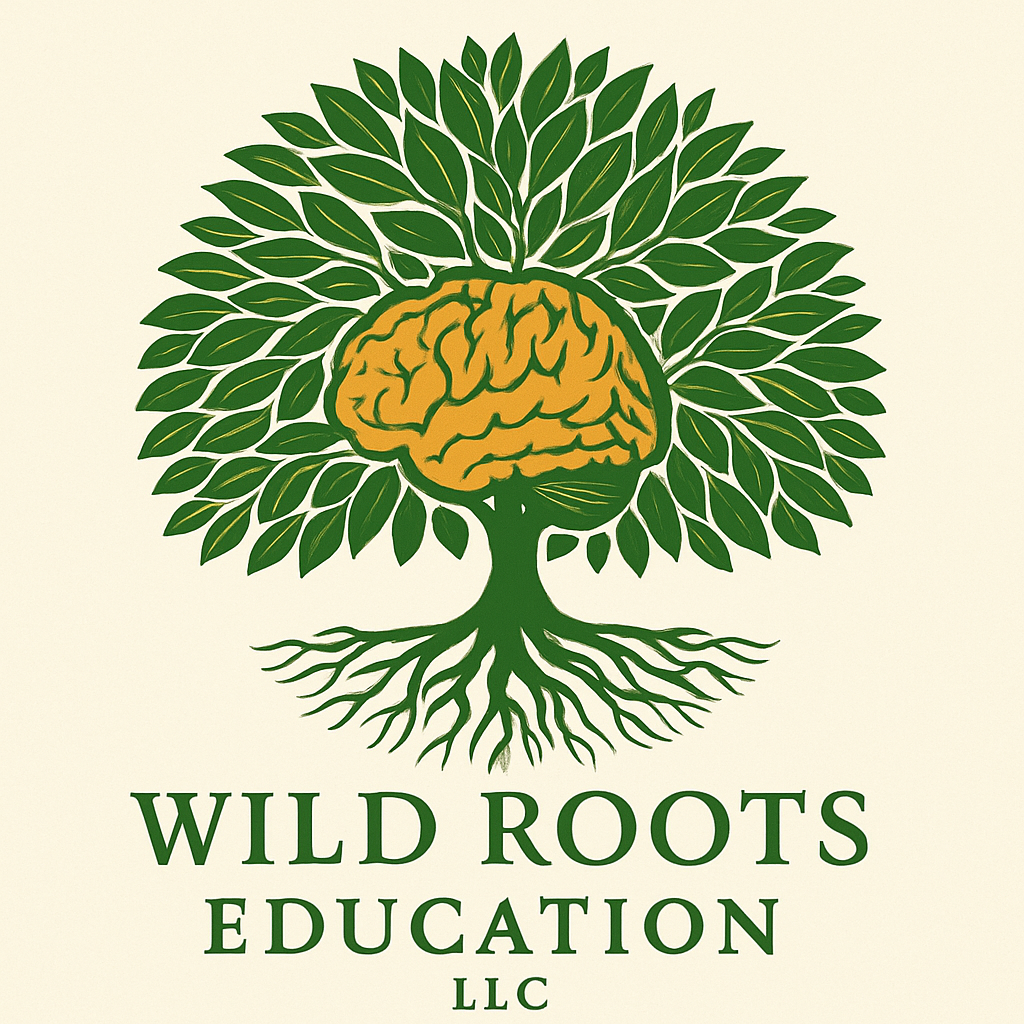Over the years, I have read countless books in search of answers to help my children thrive. Some were stepping stones, while others completely changed the way I understood health, learning, and advocacy. Each book taught me something new — how to look deeper at root causes, how to trust my instincts as a parent, and how to embrace a more holistic approach to well-being.
This page is my way of passing that knowledge on. These books empowered me to make meaningful changes in my family’s health, and they continue to influence the work I do with other families today. My hope is that, as you explore this collection, you’ll find resources that not only educate but also inspire you to take the next step in your own journey.
————————————————————————————————————
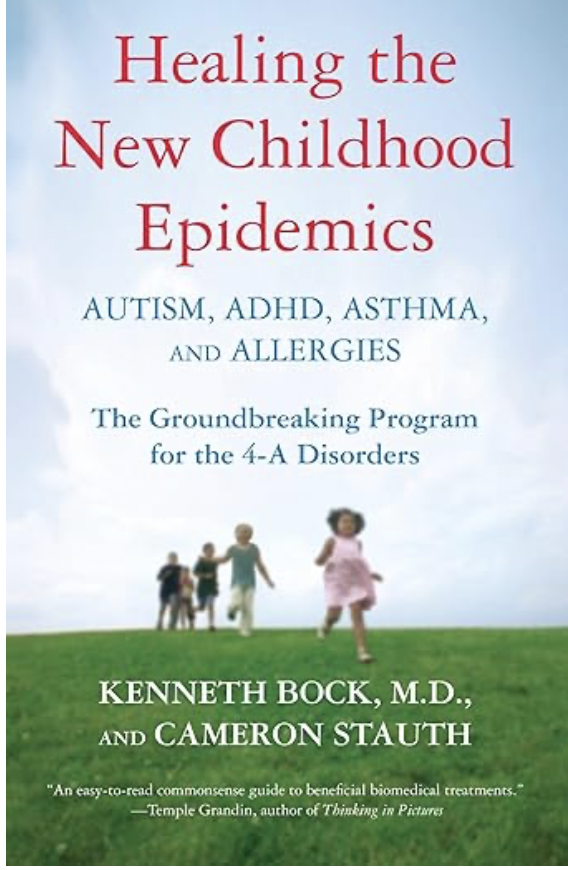
Healing the New Childhood Epidemics offers a groundbreaking, practical approach to addressing four of the most common childhood challenges today—autism, ADHD, asthma, and allergies. Dr. Kenneth Bock shares an integrative program that combines medical insight with holistic strategies to uncover root causes and support real healing. This book is an essential guide for parents who want hope, answers, and a path forward in helping their children thrive.
Affiliate Link: https://amzn.to/4nmMxR2
————————————————————————————————————
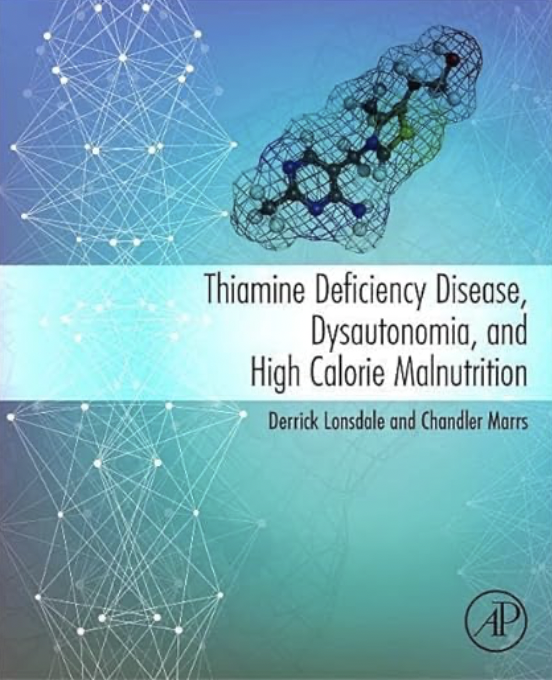
Thiamine Deficiency Disease, Dysautonomia, and High Calorie Malnutrition by Derrick Lonsdale and Chandler Marrs explores the critical but often overlooked role of thiamine (vitamin B1) in human health. The authors connect thiamine deficiency not only to the well-known condition beriberi but also to modern disorders involving dysautonomia, or dysfunction of the autonomic nervous system (ANS), which controls essential processes like heart rate, blood pressure, digestion, and breathing. Central to their argument is the concept of “high-calorie malnutrition,” where diets rich in sugar and processed foods provide an excess of calories but lack essential micronutrients like thiamine. This mismatch increases stress on the mitochondria—the cell’s energy producers—and when thiamine is insufficient, energy metabolism falters. The book highlights how this breakdown in cellular energy can directly impair ANS function, triggering a wide range of symptoms from cardiovascular irregularities and gastrointestinal distress to neurological and cognitive disturbances, many of which are frequently misdiagnosed. The authors also examine how pharmaceuticals, vaccines, and other medical interventions can act as stressors that further deplete thiamine reserves, intensifying underlying deficiencies. Through historical examples, clinical cases, and biochemical explanations, Lonsdale and Marrs show how thiamine deficiency can mimic or underlie many modern chronic illnesses. They advocate for a shift in medicine to recognize mitochondrial health, thiamine sufficiency, and ANS regulation as central to preventing and treating disease, especially in an era of high-calorie but nutrient-poor diets.
Affiliate Link: https://amzn.to/4gvSzwo
————————————————————————————————————
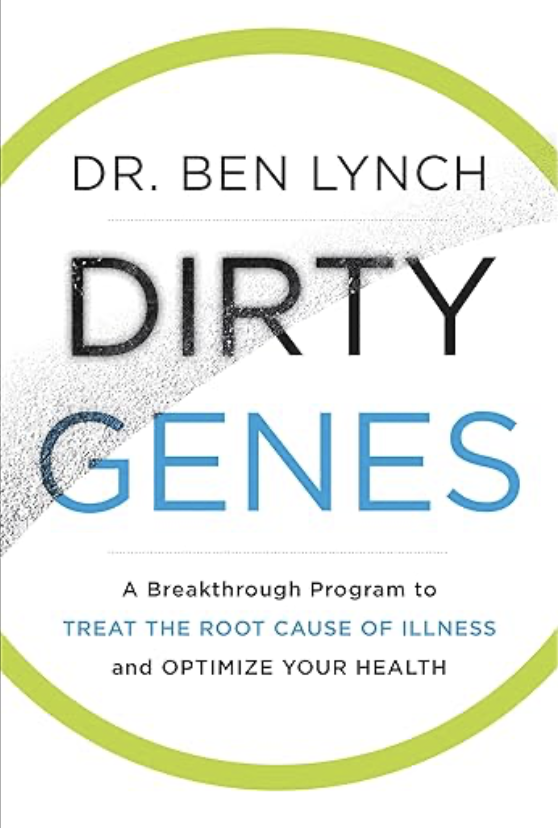
Dirty Genes by Dr. Ben Lynch explores how our genes influence health — and how lifestyle choices can either “dirty” or “clean” them. While many people think genetic problems are fixed at birth, Lynch explains that most genes are not permanently broken. Instead, they can be switched on or off depending on diet, environment, stress, sleep, toxins, and mindset.
The book focuses on seven key genes that play a major role in mood, energy, focus, weight, and overall wellness. Lynch calls them “super genes,” and he explains how each one affects the body when it’s working well versus when it’s “dirty.” Rather than relying only on lab tests, he provides simple self-assessments so readers can identify their own genetic tendencies.
Most importantly, Lynch empowers readers with practical strategies to support and “clean up” these genes. He offers guidance on nutrition, supplements, stress management, and daily routines that help reduce the impact of genetic weaknesses.
The central message is that your DNA is not your destiny. By making intentional choices, you can work with your genes to unlock better health, prevent disease, and live with more vitality.
Affiliate Link: https://amzn.to/3VRzICj
————————————————————————————————————

The Trifecta Passport (2021) offers guidance and tools for navigating three complex, often overlapping chronic health conditions: Mast Cell Activation Syndrome (MCAS), Postural Orthostatic Tachycardia Syndrome (POTS), and hypermobile Ehlers-Danlos Syndrome (hEDS). Amber Walker, a doctor of physical therapy with additional certification in functional medicine and nutrition, uses both her professional experience and personal insight to help readers get a clearer picture of what’s going on in their bodies.
The book is divided in two parts:
- Part One (about 3 chapters) explains MCAS, POTS, and EDS individually and how they interconnect.
- Part Two covers 9 chapters of actionable pillars and strategies—nutrition, lifestyle, nervous system regulation, managing biotoxins (like mold), stress and emotional health, structural and musculoskeletal support, and understanding how root causes (hormones, gut health, infections) can trigger or aggravate symptoms. The book ends with patient case stories that show how the tools can be put into real life.
Affiliate Link: https://amzn.to/3KcvNgR
————————————————————————————————————
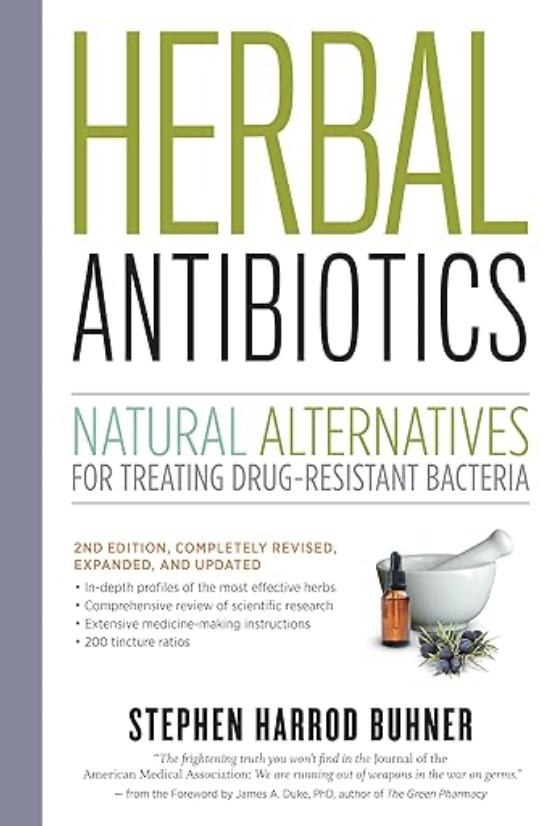
Herbal Antibiotics (2nd ed.) by Stephen Harrod Buhner addresses the growing global problem of antibiotic resistance and offers herbal medicine as viable alternatives. Buhner begins by explaining how overuse of pharmaceutical antibiotics — in people, livestock, and agriculture — has led to so-called “superbugs,” strains of bacteria that no longer respond to standard treatments. W
After setting the stage, the book turns to herbal solutions. It profiles around 30 plants that have antibiotic properties, discussing their traditional uses, the scientific research behind them, proper dosages, potential side effects, and cautions. Some herbs are systemic (affecting the whole body), others are non-systemic (for more localized infections), and some act as synergists, meaning they increase the effectiveness of other herbs or treatments.
Buhner also emphasizes immune system support — herbs, lifestyle, and environmental factors that help strengthen the body’s defenses so infections can be managed more successfully. He includes instructions on how to prepare herbal medicines (tinctures, teas, poultices) and offers a formulary (a reference list of herbal preparations) so readers can more easily apply the information.
The book is both informative and practical, especially for readers interested in natural approaches to health. It encourages readers to view herbs not just as an alternative, but as an important complement to conventional care — especially where antibiotic resistance is a concern.
Affiliate Link: https://amzn.to/47NHsg7
————————————————————————————————————
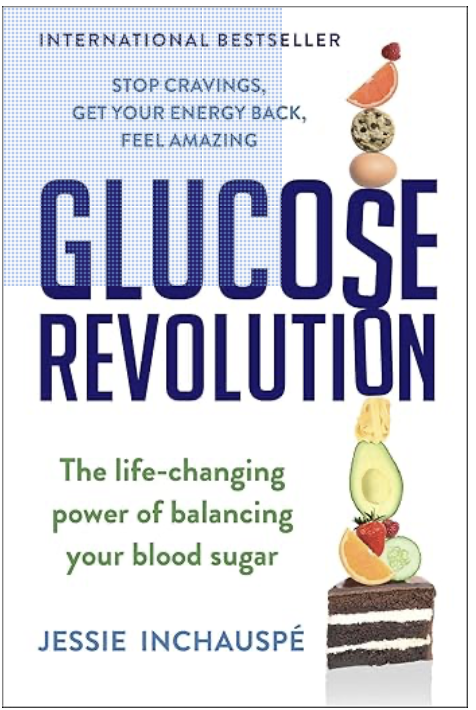
Glucose Revolution by Jessie Inchauspé
Glucose Revolution by Jessie Inchauspé (also known as the “Glucose Goddess”) explores how balancing our blood sugar can have a powerful impact on our energy, mood, and long-term health. Inchauspé explains that many everyday foods—even ones we think of as healthy—can cause sharp spikes in blood glucose. These spikes are often followed by crashes, which can lead to fatigue, cravings, difficulty focusing, and even long-term issues like inflammation and insulin resistance.
The book doesn’t promote dieting or restriction. Instead, it offers simple, science-backed strategies to reduce glucose spikes while still enjoying the foods you love. Some of the key tools include:
- Eating foods in the right order (fiber first, then protein and fat, then starches/sugars)
- Pairing carbs with protein or fiber to slow absorption.
- Taking short walks after eating to help the body use glucose more efficiently.
By making these small, practical shifts, Inchauspé shows how anyone can support steady energy, improve digestion, balance hormones, and strengthen long-term health.
At Wild Roots Education, we see connections between physical health and learning. Books like Glucose Revolutionremind us that supporting children’s and families’ well-being—from balanced meals to stable energy—is an important foundation for growth, focus, and resilience.
Affiliate Link: https://amzn.to/4nUqfGk
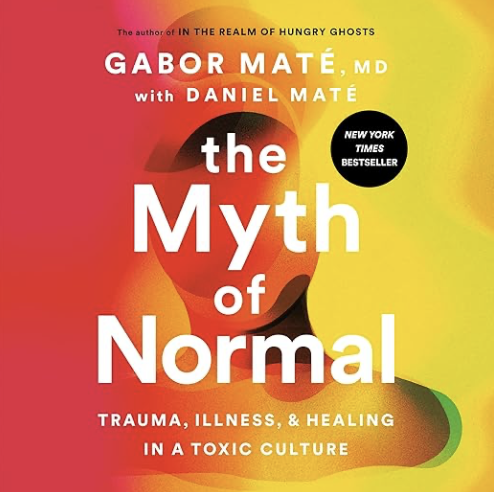
The Myth of Normal by Gabor Maté
In The Myth of Normal: Trauma, Illness, and Healing in a Toxic Culture, physician and author Gabor Maté challenges the idea that modern life as we know it is “normal.” He argues that many of today’s chronic illnesses, mental health struggles, and developmental challenges are not random, but instead are rooted in how our culture handles stress, trauma, and connection.
Maté explains that the body and mind are deeply interconnected. When early stress or emotional pain goes unrecognized, it can later appear as physical illness, anxiety, depression, or burnout. He shows how modern society—fast-paced, disconnected, and often dismissive of human needs—creates an environment where these struggles become widespread.
But the book is also hopeful: Maté highlights the power of compassion, authenticity, and healing practices that reconnect us to ourselves and to others. He invites readers to question cultural “norms” and embrace more humane ways of living that support true health.
At Wild Roots Education, we believe children thrive when families and communities honor the whole person—body, mind, and spirit. The Myth of Normal reinforces this truth, showing us that healing and growth are possible when we nurture resilience, connection, and authenticity.
Affiliate Link: https://amzn.to/4mKQApi
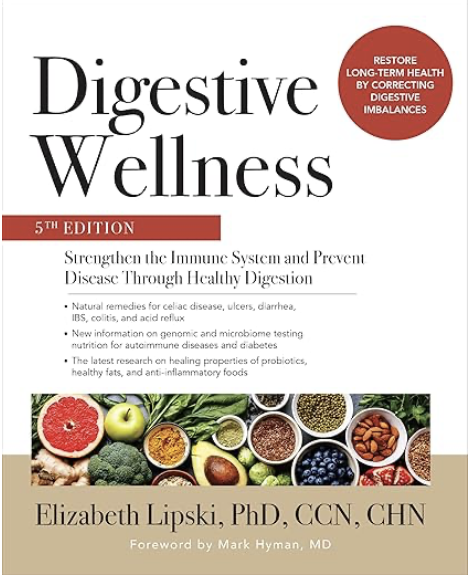
Digestive Wellness by Elizabeth Lipski
Digestive Wellness by Elizabeth Lipski is a comprehensive guide to understanding and healing the gut—the body’s “second brain” and a foundation for whole-body health. Lipski explains how many common health issues, from fatigue and allergies to mood swings and learning difficulties, can be traced back to imbalances in the digestive system.
The book covers a wide range of topics, including the role of gut bacteria, food sensitivities, inflammation, detoxification, and the gut-brain connection. Lipski emphasizes how everyday choices—what we eat, how we manage stress, and the way we support digestion—directly affect energy, immunity, and overall well-being.
Rather than focusing on quick fixes, Digestive Wellness offers practical strategies for long-term healing: improving diet, supporting gut microbes, addressing nutrient deficiencies, and using lifestyle tools to restore balance.
At Wild Roots Education, we recognize that children’s ability to learn and thrive is deeply connected to their physical health. Digestive Wellness reminds us that supporting the gut is not just about digestion—it’s about laying the groundwork for focus, resilience, and whole-person growth.
Affiliate Link: https://amzn.to/4mMScza
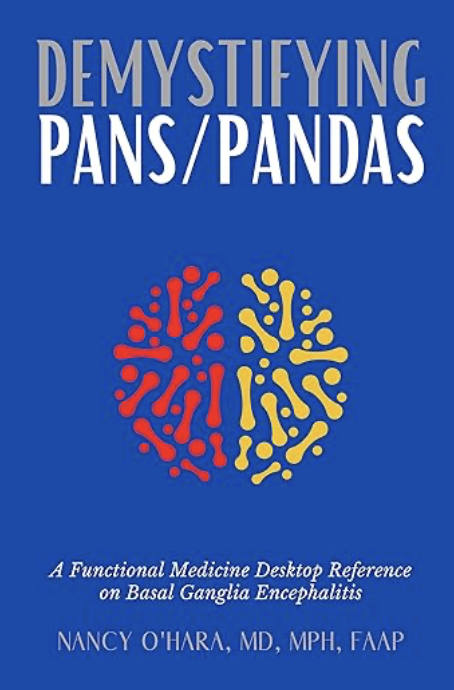
Demystifying PANS/PANDAS by Dr. Nancy O’Hara
In Demystifying PANS/PANDAS, Dr. Nancy O’Hara, a pediatrician with over 30 years of experience, delves into the complexities of Pediatric Acute-onset Neuropsychiatric Syndrome (PANS) and Pediatric Autoimmune Neuropsychiatric Disorders Associated with Streptococcal infections (PANDAS). These conditions are characterized by sudden-onset psychiatric symptoms in children, often triggered by infections or immune system dysfunctions.
Dr. O’Hara introduces a comprehensive “three-pronged approach” to diagnosis and treatment:
- Identifying and Addressing Infectious or Metabolic Triggers: Recognizing underlying infections or metabolic imbalances that may contribute to the condition.
- Implementing Immunomodulation and Immune Support: Utilizing therapies to modulate and support the immune system.
- Symptom Management: Addressing the most impactful symptoms to improve the child’s quality of life.
The book offers practical guidance for both medical professionals and families, emphasizing the importance of a collaborative approach to care. It includes case studies, treatment strategies, and insights into navigating the complexities of PANS/PANDAS.
Affiliate LInk: https://amzn.to/4nxYtjc
